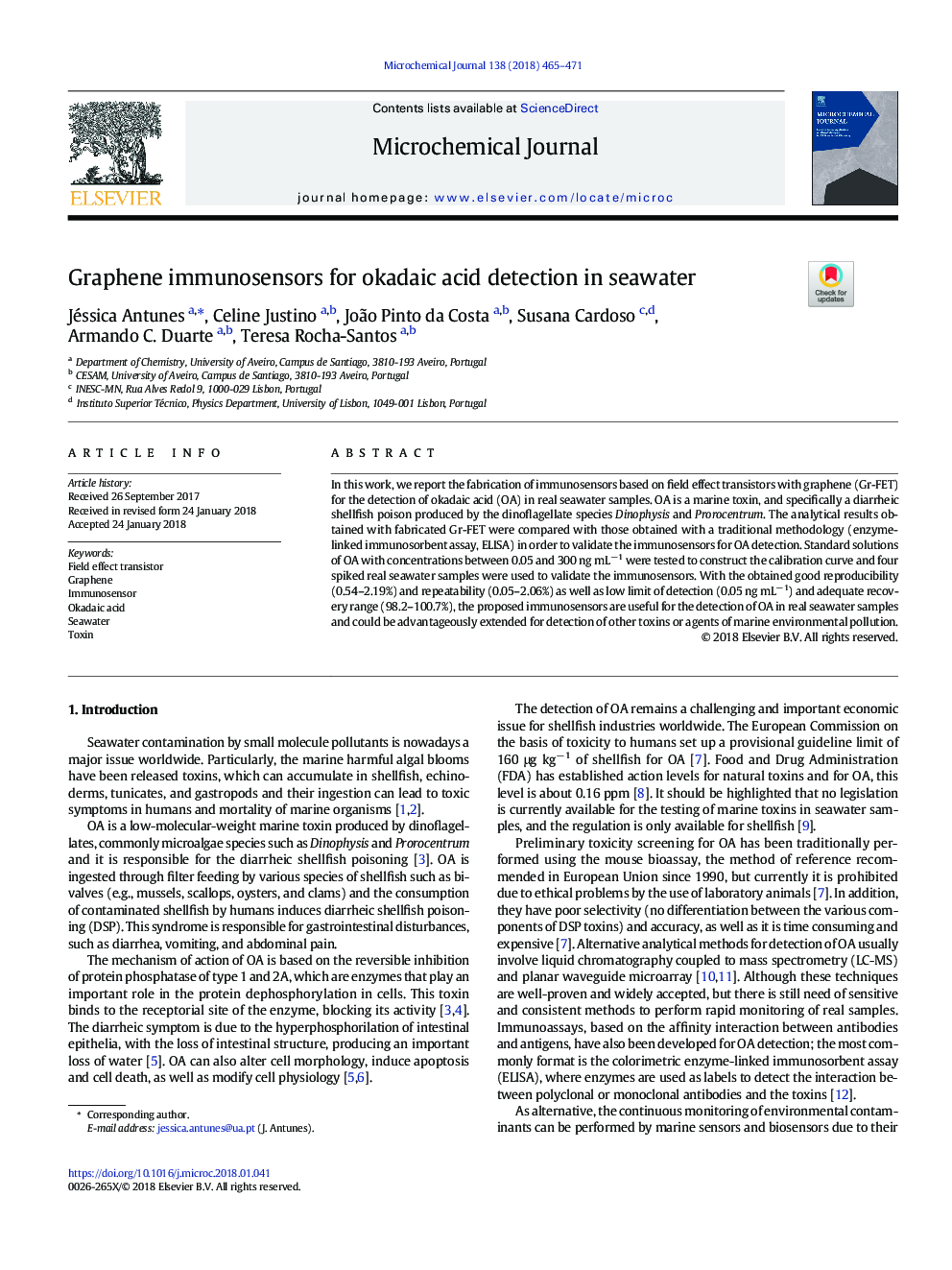| Article ID | Journal | Published Year | Pages | File Type |
|---|---|---|---|---|
| 7641024 | Microchemical Journal | 2018 | 7 Pages |
Abstract
In this work, we report the fabrication of immunosensors based on field effect transistors with graphene (Gr-FET) for the detection of okadaic acid (OA) in real seawater samples. OA is a marine toxin, and specifically a diarrheic shellfish poison produced by the dinoflagellate species Dinophysis and Prorocentrum. The analytical results obtained with fabricated Gr-FET were compared with those obtained with a traditional methodology (enzyme-linked immunosorbent assay, ELISA) in order to validate the immunosensors for OA detection. Standard solutions of OA with concentrations between 0.05 and 300 ng mLâ1 were tested to construct the calibration curve and four spiked real seawater samples were used to validate the immunosensors. With the obtained good reproducibility (0.54-2.19%) and repeatability (0.05-2.06%) as well as low limit of detection (0.05 ng mLâ1) and adequate recovery range (98.2-100.7%), the proposed immunosensors are useful for the detection of OA in real seawater samples and could be advantageously extended for detection of other toxins or agents of marine environmental pollution.
Related Topics
Physical Sciences and Engineering
Chemistry
Analytical Chemistry
Authors
Jéssica Antunes, Celine Justino, João Pinto da Costa, Susana Cardoso, Armando C. Duarte, Teresa Rocha-Santos,
